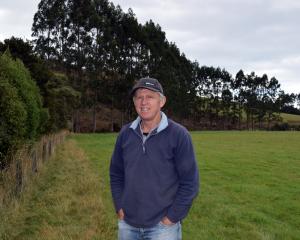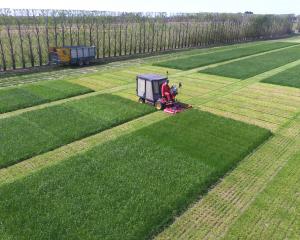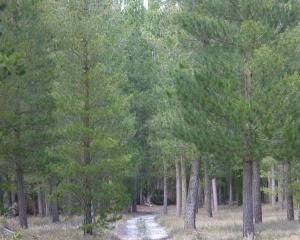The long-running liquidation of winery Lochar Estate in Central Otago may yet be headed to the High Court, following dismissal of an application for a summary judgement over an alleged $400,000 debt.
At the centre of the dispute is the definitions behind the transaction of the $400,000, at times labelled ''problematic'' and ''arguable'' through to ''shambolic'' record keeping.
Lochar Estate had defaulted on interest payments on a loan from Nelson-based FICO Finance, which was owed $639,526.
A receiver was appointed in September 2014 and its liquidation was overseen by Robert W. Walker Chartered Accountant, of Wellington, starting December 2014.
Lochar was incorporated under the name Bannock Brae Vineyards Ltd in December 2009, and one of its directors and shareholders was Jamie Donaldson.
A May 16 decision from the High Court at Wellington has just been released, in which Lochar liquidator Robert Walker sought to sue Mr Donaldson to recover an alleged debt of $400,000, which was a payment made to purchase 420 shares in Lochar Estate.
In Mr Walker's latest six-monthly report on the liquidation, he noted in April he had ''initiated legal action'' against a shareholder, over ''a debt due and payable to the company [Lochar]''.
Mr Walker said when contacted yesterday while the summary judgement had been dismissed, his options now were ''to either go to full trial or seek [out of court] settlement discussions''.
In his decision, associate Judge Kenneth Johnston said Mr Donaldson and another shareholder had share capital of 1000 shares.
The company was incorporated to establish a vineyard in order to sell wine into Asia, and it was ''envisioned from the outset'' that would attract foreign investors.
Judge Johnstone said Lochar purchased an 18ha vineyard from John and Anne Cook for $950,000 - $550,000 cash and the balance being 420 of the 1000 original shares, transferred to the Cooks.
There was a shareholder agreement in place.
Any time in the next three years Lochar's other shareholders could buy back the Cook's shares at an agreed price - a ''call option''.
After those three years the Cooks were entitled to buy the other shareholders' stakes at an agreed price - a ''put option''.
''There are two equally arguable, if equally problematic, interpretations of the put transaction,'' Judge Johnston said.
However, just before the end of the three years, overseas investors owned 24.9% of Lochar, but Lochar's performance as a company was not as shareholders ''might have hoped'', the judge said.
Mr Donaldson corresponded with overseas shareholders, looking to repurchase the Cooks' shareholding for $400,000.
There ensued a complicated process to raise offshore funds, largely from Hong Kong, and ultimately the Cooks paid $380,000, not $400,000, and their shares went to Mr Donaldson.
''That summary of facts brings me to the heart of the case, the proper characterisation of the various transactions,'' Judge Johnston said.
''To be blunt, the way in which the original transaction and the exercise of the put option were recorded in Lochar's financial records was shambolic,'' Judge Johnston said.
He noted neither Mr Walker nor Mr Donaldson contended the financial records reflected the situation ''accurately'', he said.
There were loan terms to be considered, what was meant by ''vendor loans'' and ''shareholder loans'' and issues of where payments lay in trust, he said.
''In my judgement, this is not a case that can be resolved on affidavit evidence.''
He dismissed Mr Donaldson's application for a summary judgement.
The company's assets at point of liquidation were stock bulk and bottled wines, and after receivership costs, about $600,000 was handed to the liquidator. In April 2014 all assets were $1.22million, less all liabilities of $1.99million, leaving a loss of $768,449.













